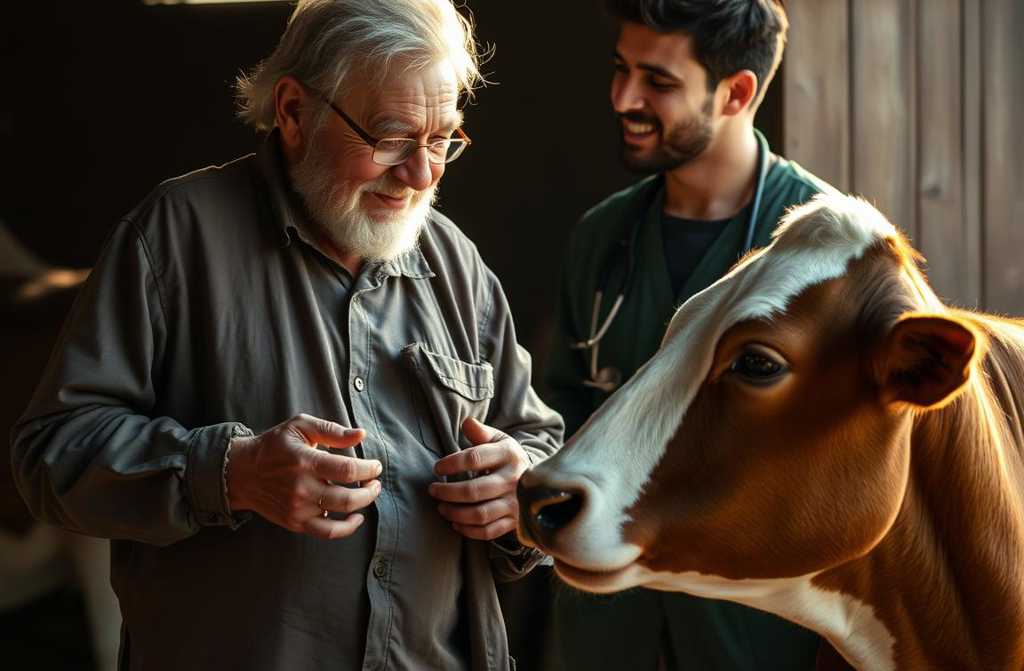By the time he turned sixty, Clive was haunted by regrets over his youthful actions. Lately, memories of past mistakes kept creeping into his mind, as if age had sharpened their edges. No matter how hard he tried to push them away, they lingered like stubborn shadows.
From boyhood, Clive had a fiery temper. His sense of justice burned too brighthe couldnt stand unfairness, and his fists always answered before his words. As he grew older, boys in the village still sought him out to settle disputes.
“Clive, settle this for us,” theyd say. “If Tommy and Billy snuck into Old Man Harriss orchard to nick apples, but only Billy got caught and ratted Tommy out, and then Tommy thrashed Billy for it, whos in the wrong?”
Clive was the arbiter of such squabbles, and the lads respected him for it. Time rolled on. When he was in Year Eight, another injustice struck. Clive was a strong ladfootball, volleyball, cross-country, he excelled in all of it. That winter, the district held a skiing competition, and the school held trials to pick their representative. Naturally, Clive finished first by a mile.
“Knew youd win, Clive,” his mate Tommy said. “The PE teacherll send you, no question.”
But the teacher had other plans. He crowned Edwardhis old friends sonthe winner instead, announcing with a smirk, “Edward will represent the school.” The other pupils grumbled, but the teacher cut them off. Clive, barely holding back, confronted him.
“Why this?” he demanded.
“Edwards leaving after Year Nine. Let him have this one. You can go next year.” The teacher gave Clive a light shove toward the door.
On the way home, Clive cornered Edward. He didnt think hed hit him that hard, but Edward was too bruised to compete. Of course, Clive wasnt sent eitherjust hauled into the headmasters office. Worse, Edwards mother taught history there.
From then on, the PE teacher and the history mistress made Clives life hell. He endured it until Year Eight, then quit school altogether. His parents scolded him, but he found work instead.
“Mum, leave off,” he said. “I wont last in Year NineIll lose my temper, I know it.” His mother knew his quick fists too well to argue.
In the village, work meant the farm. Clive shadowed old Mick, the vet, learning the trade by watching. Mick saw promise in him.
“Shame you didnt stay in school, lad. Youd have made a fine vet,” Mick often said.
“I like fixing animals,” Clive admitted.
But fate had a bitter twistEdward qualified as a vet and took Micks place when he retired. Clive watched from afar, certain Edward knew less than he pretended. Book learning was one thing; hands-on skill was another.
He never interfered. “Hes got the certificate. Must know what hes doing.”
Then the farm manager ordered Edward to vaccinate the livestocksomething Clive could do in his sleep. Edward panicked and went to Mick for help, but Mick had a broken leg and was stuck at home.
“Ask Clive,” Mick said. “He knows the work inside out.”
Edward had no choice.
“Help me with the jabs. I cant manage alone.”
Clives old grudge flared. “Youre the expert. Youll get paid for itkeep the lot.” He walked off.
The next day, the manager berated Edward in front of everyone. Edward, half-drunk and near tears, came begging.
“Clive, Im sorry about school. Pleasehelp me.”
Pity stirred in Clive. “Cant hold a grudge forever.”
He helped Edward finish the job quickly. The manager praised them both, but Edwards thanks was a bottle of whiskey. Clive took one look at itknowing full well he never drankand smashed it against a stone.
“A simple ‘ta’ wouldve done.”
Years passed. One winter, when wages stopped coming, Clive raised his fists again. Hed started raising cattle to sell meathis only income.
Elderly Mrs. Wilkins from down the lane asked him for a lift to town.
“Bus is too much for me these days,” she said.
He drove her, refusing payment, but she left coins on the seat anyway. “For petrol, love. Might need you again.”
Word spread. Soon, the whole village came to Clive for lifts. He never turned anyone down, taking whatever they could spareor nothing at all.
Then Nigel, a neighbour, grew jealous and started undercutting him, charging fixed fares. Villagers grumbled to Clive.
“Whyre you fleecing them?” Clive confronted Nigel.
“Whats it to you? Its my car, my price. Stealing your business, am I?” Nigel laughed in his face.
Clives fist flew. Nigel tried to turn the village against him, but no one listened. They kept coming to Clive.
In his later years, guilt gnawed at him. Hed once teamed up with a villager, Charlie, digging septic tanks. Business boomed, so they hired two lads to help. Then Clive fell ill one week. When he returned, Charlie hadnt paid him.
“Mustve stiffed Charlie too,” Clive thought, but the builder swore hed paid in full.
The lads told the truthCharlie had pocketed most of it.
Clive stormed over. “Wheres my share?”
Charlie stammered, “Well, the wife and I spent it in town”
Clive hit him. They never spoke again.
Now, nearing sixty, Clive lay awake at night, tormented. Even church couldnt quiet his conscience. The vicars sermons on sin rang too loud.
“Fighting for justice but was it ever right?” He thought of his own sons. “If someone hit my boys, Id never forgive it.”
Regret was a cold bedfellow. Charlie had died years laterdrink, not fistsbut the guilt remained.
“Too late to mend it now,” Clive whispered to the dark. The past was a ghost that wouldnt leave.







